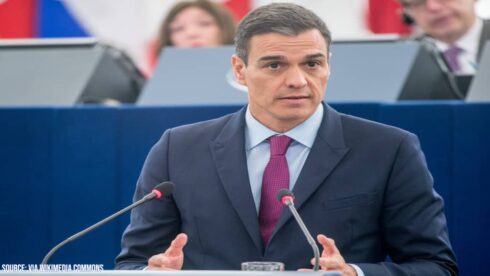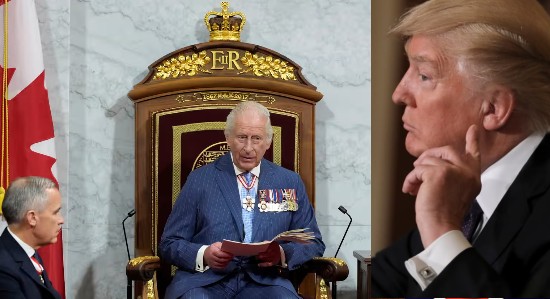Spanish Prime Minister Pedro Sanchez’s has unveiled a groundbreaking proposal to ban non-EU nationals from purchasing property in Spain, aiming to combat the nation’s escalating housing crisis. Speaking at a rally in Plasencia on January 20, Pedro Sanchez declared, “We will propose banning non-EU foreigners who are not residents, along with their families, from buying property here, as they are doing so to speculate.”
The announcement reflects Pedro Sanchez’s determination to address the growing housing affordability problem, exacerbated by foreign investors driving up property prices. While the ban is still under discussion, it has already sparked widespread debate, with Pedro Sanchez emphasizing that the measure is necessary to protect Spain’s citizens from being priced out of their own housing market.
Pedro Sanchez Advocates Tax Reforms to Curb Speculation
Pedro Sanchez has also introduced a plan to impose up to 100% taxes on property purchases by non-EU nationals who are not residents of Spain. This proposal, revealed earlier this month, is designed to deter speculative investments that inflate property values and limit accessibility for local buyers.
Pedro Sanchez views this tax reform as a vital step in stabilizing the housing market. “We need to discourage speculative behavior and ensure that housing serves its primary purpose—as homes for people, not as commodities,” he stated. The government believes these financial deterrents will complement the proposed purchase restrictions and create a fairer housing market.
Pedro Sanchez Targets Housing Shortages as a National Priority
Under Pedro Sanchez’s leadership, the Spanish government has identified the housing crisis as a national priority. With a projected shortfall of 500,000 homes in 2025, Pedro Sanchez has vowed to implement policies that increase housing supply and curb demand from non-residents.
Pedro Sanchez has repeatedly highlighted the need for urgent action, stating, “The right to affordable housing is a cornerstone of social justice, and we will not stand by as our citizens struggle to find homes.” His administration is exploring additional measures, such as incentivizing affordable housing construction and limiting gentrification in urban areas.
Pedro Sanchez Faces Pushback from Real Estate Stakeholders
Pedro Sanchez’s proposals have met resistance from real estate professionals and regional leaders who argue that restricting foreign investments could harm Spain’s economy. Critics warn that regions reliant on international buyers, such as the Costa del Sol and Balearic Islands, may experience economic downturns if the measures are enacted.
Pedro Sanchez’s, however, remains firm in his stance, asserting that the well-being of Spanish citizens outweighs potential economic risks. “Housing is not a luxury—it’s a fundamental right,” he remarked, addressing concerns about the impact on tourism and property development sectors.
Pedro Sanchez’s Links Foreign Investment to Gentrification
Pedro Sanchez has drawn a direct connection between foreign property purchases and the gentrification of Spanish cities. Urban areas like Madrid and Barcelona have witnessed dramatic transformations, with traditional neighborhoods becoming inaccessible to local residents due to rising rents and luxury developments.
Pedro Sanchez’s policies aim to reverse this trend, ensuring that Spain’s urban spaces remain inclusive. “We must reclaim our cities for the people who live and work in them,” Pedro Sanchez said, underscoring the importance of prioritizing local needs over foreign speculation.
Pedro Sanchez Pushes for Long-Term Housing Solutions
Pedro Sanchez is advocating for a multi-faceted approach to resolve Spain’s housing crisis, emphasizing the importance of both immediate and long-term strategies. His administration is working on policies to increase affordable housing construction, regulate rental markets, and limit speculative investments by foreign buyers.
“Spain’s housing market needs structural reform, and we are ready to lead the way,” Pedro Sanchez declared, urging bipartisan support for his proposals. As debates continue, Pedro Sanchez’s leadership on this issue could define his legacy and set a precedent for addressing housing affordability on a global scale.














